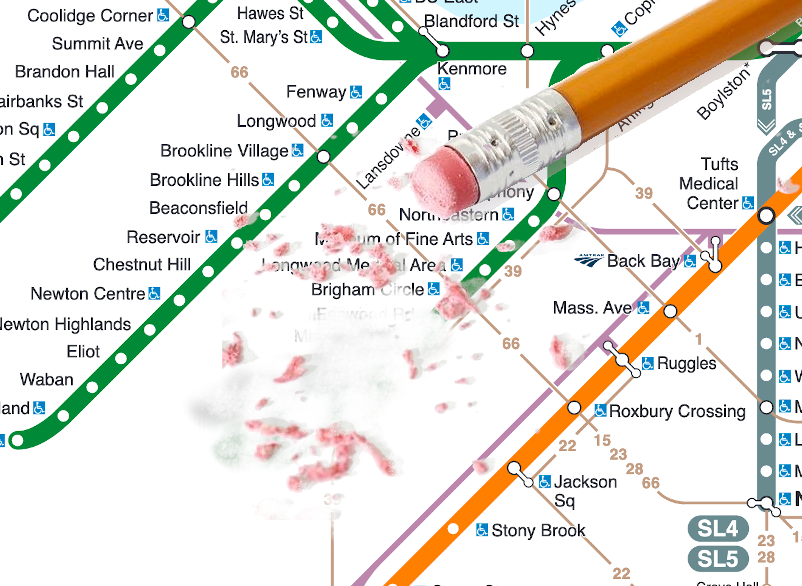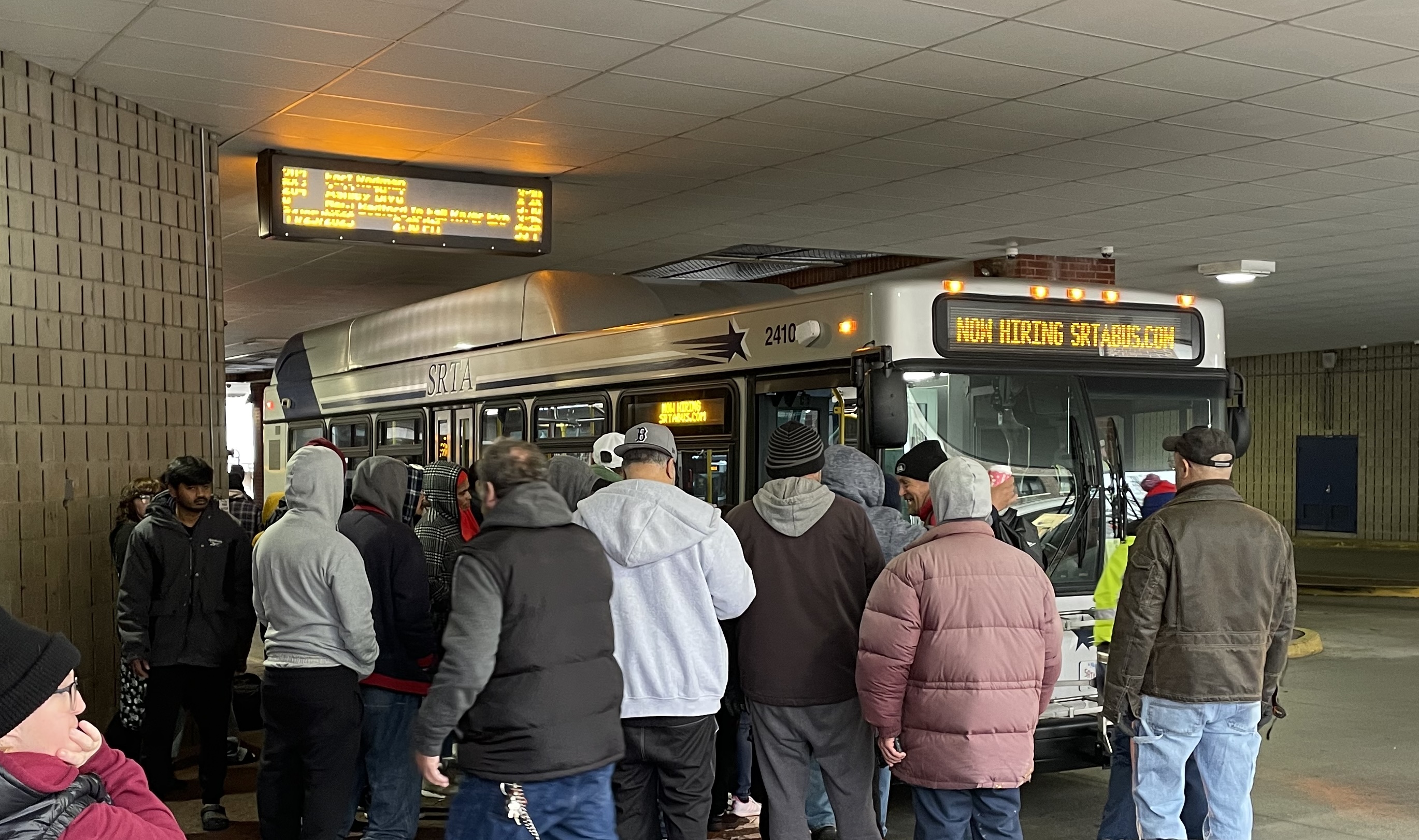
The MBTA's Fiscal and Management Control Board will meet at noon today with an agenda that's primarily devoted to its service cut proposals, which, if approved, could take effect within the next few months.
The MBTA has estimated a budget shortfall of about $600 million in its budget for fiscal year 2022, mostly from the loss of fare revenue as riders continue to stay at home during the pandemic.
To help fill that budget gap, the agency has proposed eliminating ferry service, ending dozens of lower-ridership bus routes, eliminating commuter rail service on nights and weekends, and closing several rail stations, including a portion of the Green Line in Mission Hill.
Here are a few things to watch at today's meeting:
- How big is the shortfall, really? Critics have noted that the T's official budget estimate is based on extremely uncertain projections of future ridership, and economic scenarios that were formulated before the public announcement of several successful COVID-19 vaccine trials.The proposed service cuts would save the agency about $100 million a year - about one-sixth of the agency's estimated shortfall (the bulk of the budget deficit would be covered by administrative savings and from a temporary shift in funds from the agency's relatively well-funded capital construction budget). So slightly rosier ridership projections could provide enough money to eliminate the need for these drastic service cuts.
- Could cuts be delayed? At the last FMCB meeting on Dec. 8, MBTA General Manager Steve Poftak hinted that the T was open to scaling back or postponing some proposed service cuts in light of overwhelming public opposition to elimination of transit routes, plus more optimistic news in vaccine development and a possible federal aid package.While the original package of cuts had been expected to take effect near the beginning of 2021 to start saving money immediately, Poftak suggested that some cuts could be postponed until fiscal year 2022, which begins in July. That would give the agency a couple more months to wait for possible relief from a federal stimulus package, or from increased funding from the Massachusetts Legislature.
- Will Beacon Hill help? A "Transit Is Essential" coalition is focusing their pressure both on the FMCB and on the Massachusetts Legislature, which is ultimately responsible for funding the MBTA. A transportation revenue bill that passed the Massachusetts House in March, before the pandemic, could solve a lot of the MBTA's budget problems, but the Senate has so far avoided debating it.The coalition has set up a new website, transitisessential.org, to connect advocates directly with their lawmakers.






